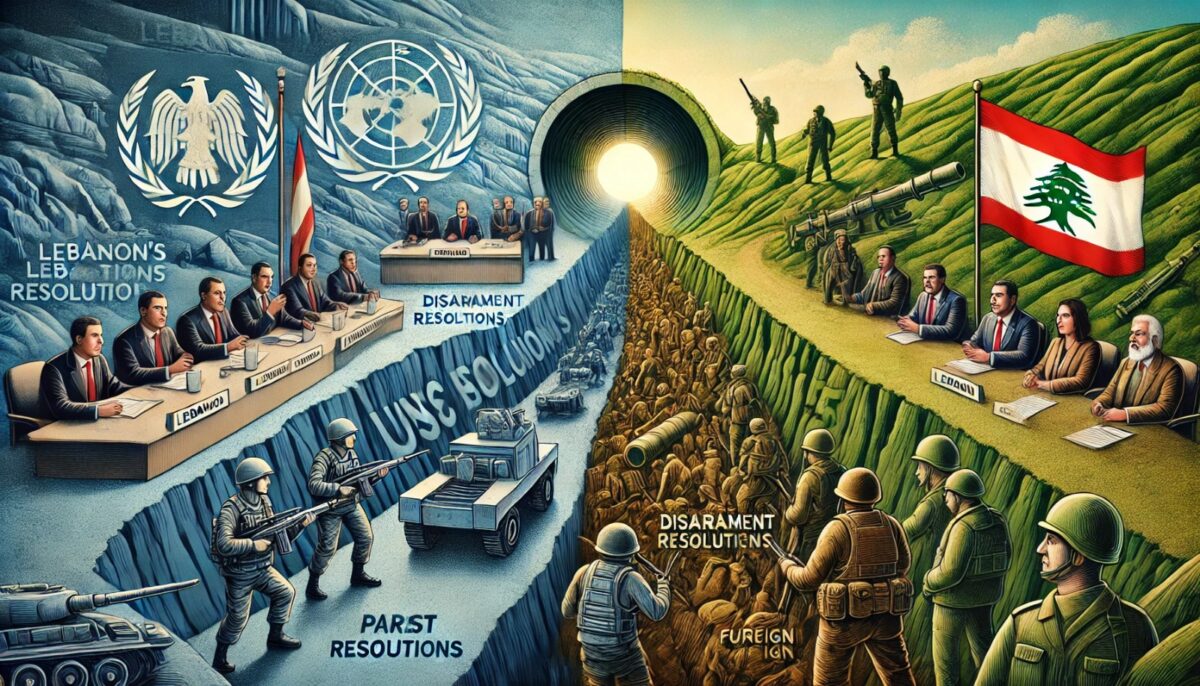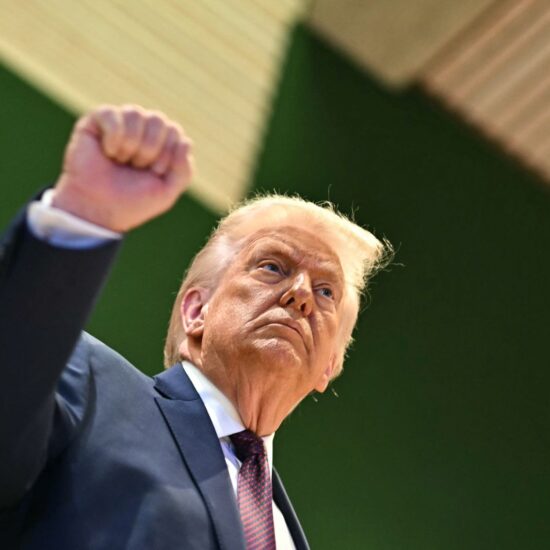
An insight into UN Resolution 1559, its call for the disbanding and disarmament of all Lebanese and non-Lebanese militias in the country, and how its terminology - stronger than 1701 - makes its implementation so reluctant
In the Levant today, the term “tunnels” often evokes negative connotations due to their association with warfare and instability. While civilians in Lebanon and Gaza lack access to bomb shelters, significant resources are invested in tunnels to be used during conflicts. However, this wasn’t always the case. Just four years ago, the Lebanese Parliament approved a law to construct a tunnel between Beirut and Chtoura in central Beqaa. This project, intended to drastically reduce travel time and connect Beirut’s port with other Arab countries, aimed to transform Lebanon into a hub for maritime trade. This stark contrast highlights how rapidly Lebanon has changed in recent years. The country that presented an ambitious capital investment program at the 2018 CEDRE conference, encompassing sectors like transport, electricity, and cultural heritage, now struggles to provide basic necessities for over 1.2 million displaced people, combat a cholera outbreak, and maintain basic order. The past few years have felt like decades, as mounting challenges and a shifting context have reshaped Lebanon’s landscape, bringing about profound changes at an unprecedented pace.
Last week, Prime Minister Najib Mikati accused Iran of “blatant interference in Lebanese affairs and an attempt to establish an unacceptable guardianship over Lebanon.” This accusation followed a French daily’s publication of remarks by the Iranian parliament speaker, who expressed Iran’s willingness to negotiate the implementation of UNSC Resolution 1701. As argued previously, this incident underscores the urgent need to revive the Baabda Declaration. This political accord, if revived, would reaffirm Lebanon’s neutrality, shield the country from foreign interference, and prevent Lebanese groups from intervening in the affairs of other countries.
Following Israel’s intensified attacks starting in late September, Lebanese officials began urgently calling for a ceasefire and emphasizing their commitment to implement UNSC Resolution 1701, adopted on August 11, 2006. However, these officials have failed to address why this resolution remained unfulfilled for the past eighteen years. Had it been implemented, Lebanon might have avoided the current devastating situation with its tragic human losses, widespread destruction, and displaced people. Or maybe this is something for the Lebanese to discuss a few years from now.
Given Lebanese officials’ history of unfulfilled promises, as demonstrated in my previous analyses, a crucial question arises: what guarantees exist that this time will be different? Will they genuinely work to enforce Resolution 1701, or will their commitment prove as fleeting as a New Year’s resolution, full of good intentions but rarely followed through?
Surprisingly, Lebanese officials are pretty transparent in their rejection of UNSC Resolution 1559 adopted on September 2, 2004, portraying it as a source of disagreement and contention among the Lebanese people. However, they fail to explain why this resolution is problematic or how it could create tension or conflict. This has been especially intriguing since the 1701 resolution, which they claim to support, explicitly references the 1559 one and other resolutions such as 1680 in its preamble and Articles 3 and 7.
Recently, Parliament Speaker Nabih Berri offered a simple explanation for prioritizing Resolution 1701 over any other resolution. He told a local TV station that “UNSC 1559 is a thing of the past, and we don’t even remember it.” While he may have intended to convey that Resolution 1559 is now irrelevant, particularly after the withdrawal of Syrian troops from Lebanon, other reasons likely contribute to Lebanese officials’ resistance to its implementation. This is especially significant given the divergent contexts of the two resolutions. Resolution 1701 primarily focused on enforcing an immediate cessation of hostilities during the 2006 war, while resolution 1559 addressed the withdrawal of foreign troops, extending Lebanese government control over all territories, and holding presidential elections free from foreign influence.
Both resolutions stressed the importance of implementing the Taif Accord. However, the 1701 one had a broader scope than its predecessors, calling for an end to the war and defining the mandate and scope of UNIFIL troops in southern Lebanon. It also advocated for a more substantial Lebanese army presence in the south and supported long-term solutions to ensure a permanent ceasefire. Crucially, Resolution 1701 acknowledged the existence of disputed or “uncertain” border areas, such as the Shebaa Farms. This acknowledgment implicitly justified the preservation of Hezbollah’s possession of weapons. This point has been directly or indirectly mentioned in all ministerial statements of all subsequent Lebanese governments since August 2006.
Resolution 1701 stressed the importance of fully implementing Resolutions 1559 and 1680, including the disarmament of all armed groups in Lebanon. However, Resolution 1559 uses significantly stronger language, calling for the disbanding and disarmament of all Lebanese and non-Lebanese militias. This difference in terminology may be a key factor behind the reluctance to implement resolution 1559, particularly given the implications of “disbanding” that goes beyond the relinquishing of weapons by armed groups.
Since 2004, no Lebanese official or institution has attempted to dissect or explain the contentious elements of Resolution 1559 and their potential negative ramifications for civic peace in Lebanon. On the contrary, successive governments have unreservedly endorsed all international statements referencing Resolution 1559, such as those issued by the International Support Group for Lebanon or the Rome II Conference statement in March 2018, which focused on supporting the army and security agencies. This behavior is typical of a political élite that has long mastered the art of kicking the can down the road. However, that tactic is no longer sustainable; the can is now tumbling down a steep hill, bringing all the ignored issues to the surface. Lebanon can no longer escape its reality; it must confront its challenges or demons as the moment of reckoning looms.








